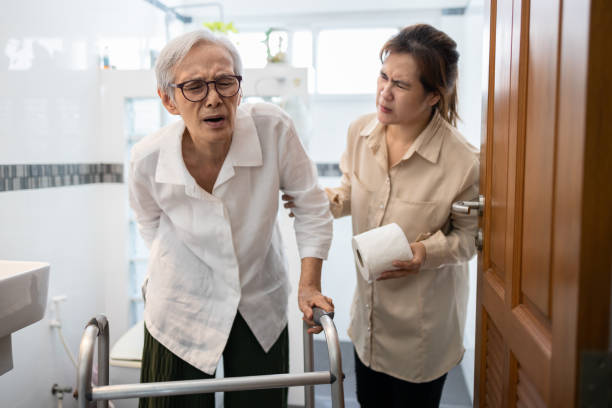Constipation is a common digestive issue that affects people of all ages. It refers to the difficulty in passing stools, or passing stools less frequently than normal. In most cases, constipation is a temporary problem that can be easily treated with simple dietary changes or over-the-counter laxatives. However, in some cases, constipation can become severe, leading to significant discomfort and even complications. In this article, we will discuss the symptoms of severe constipation and the treatment options available for this condition.
Symptoms of Severe Constipation
Severe constipation is characterized by a number of symptoms, including:
Infrequent bowel movements: This is defined as having fewer than three bowel movements per week.
Hard, dry stools: Stools that are difficult to pass and that appear dry and compacted are a sign of severe constipation.
Straining during bowel movements: Straining and pushing for longer than 10 minutes during a bowel movement is a sign of severe constipation.
Abdominal pain and bloating: Severe constipation can cause abdominal discomfort, cramping, and bloating.
Nausea and vomiting: Nausea and vomiting can be a side effect of severe constipation, especially if the stool becomes impacted in the rectum.
Loss of appetite: Severe constipation can lead to a loss of appetite and weight loss.
Treatment for Severe Constipation
There are several treatment options available for severe constipation, including:
Lifestyle changes: Simple lifestyle changes, such as increasing fiber intake, drinking more water, and getting regular physical activity, can often relieve severe constipation.
Over-the-counter laxatives: Laxatives, such as fiber supplements, stool softeners, and lubricants, can help to soften stools and relieve constipation.
Prescription medications: If over-the-counter laxatives are not effective, your doctor may prescribe stronger medications, such as polyethylene glycol or linaclotide.
Biofeedback therapy: Biofeedback therapy is a type of therapy that teaches people how to relax the muscles that control bowel movements, reducing constipation symptoms.
Surgery: In rare cases, surgery may be necessary to relieve severe constipation. This may include procedures such as a colectomy or a sacral nerve stimulation.
Stool softeners: Stool softeners, such as docusate, work by helping to soften stools and making them easier to pass.
Enemas and suppositories: Enemas and suppositories can help to relieve constipation by lubricating the rectum and promoting a bowel movement.
Prokinetics: Prokinetics are medications that increase the contractions of the muscles in the colon, helping to move stools through the digestive tract more quickly.
Conclusion
Severe constipation is a digestive issue that can cause significant discomfort and even complications. It is characterized by a number of symptoms, including infrequent bowel movements, hard, dry stools, straining during bowel movements, abdominal pain and bloating, nausea and vomiting, and a loss of appetite. There are several treatment options available for severe constipation, including lifestyle changes, over-the-counter laxatives, prescription medications, biofeedback therapy, surgery, stool softeners, enemas and suppositories, and prokinetics. If you are experiencing severe constipation, it is important to talk to your doctor to determine the best treatment plan for you.

 Home
Home Health
Health Diet & Nutrition
Diet & Nutrition Living Well
Living Well More
More












